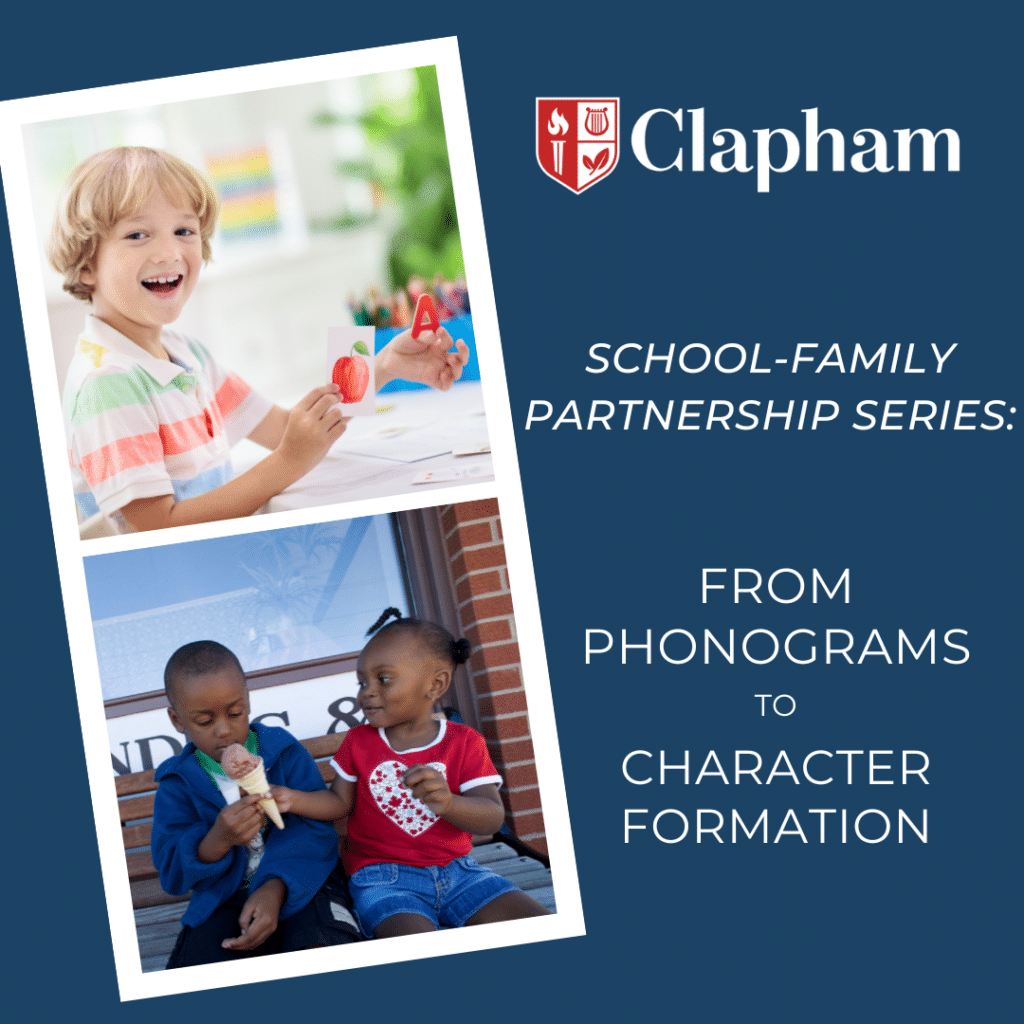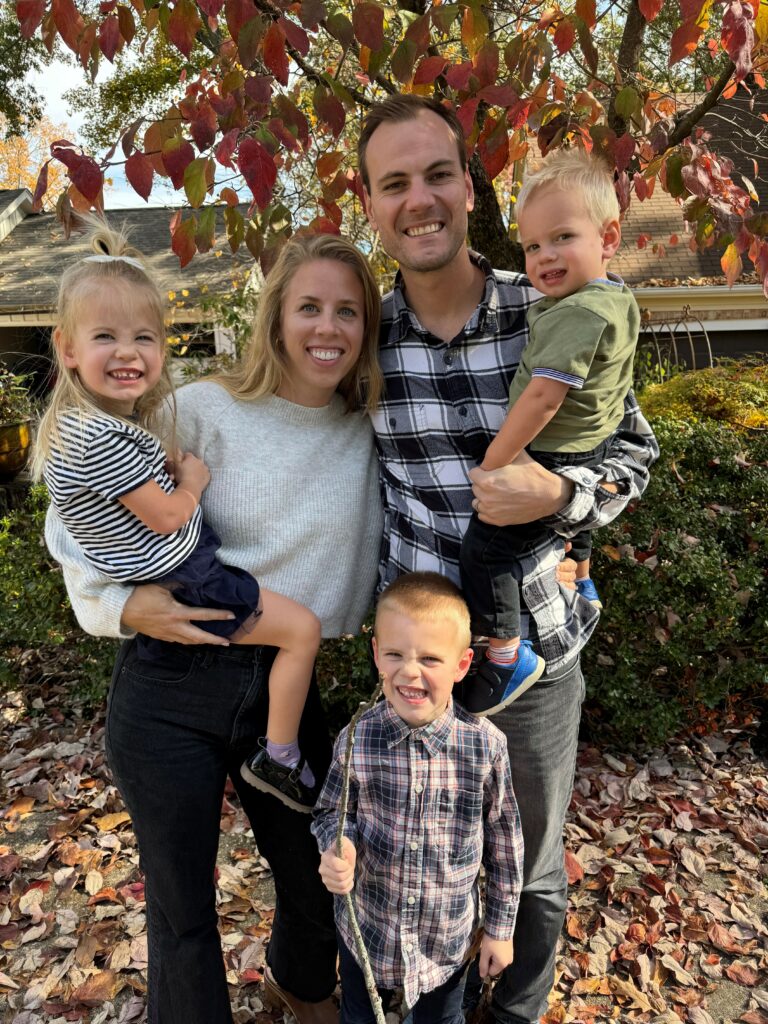
Next in our series, Clapham mom Bethany Atchison explains what parent-partnership means to their family as they begin their journey in the Explorers program.
Phonograms: The Foundation of Reading
Your oldest child just started in EI at Clapham and you’ve found Clapham’s use of phonograms to be quite helpful with his learning to read. Could you tell us more about your experience of partnering with Clapham in this area?
I had heard great things about phonograms but didn’t completely understand them. When the time came for Justus to start reading Bob books I was a little apprehensive. But when we sat down to read I was astounded! I told him to use his pointer finger like his teacher instructed me and he was off! At that moment I realized the power of phonograms.
Phonograms are the building blocks of reading (and spelling I’m told!). I’ve been excited to see my son grow in blending and fluency in reading. It’s not always perfect and there are days when he needs encouragement to read and reminders to correct a phonogram sound. But our habit of reading after lunch has become a daily routine. I am grateful for our experience because reading can be challenging for children and I know not every child receives the support of Clapham’s phonogram approach.
“For it is precept upon precept, precept upon precept,
line upon line, line upon line,
here a little, there a little.”Isaiah 28:10
I’ve been pleasantly surprised by the time required to practice phonograms. I expected hours of practice per week, but I have found that a consistent 5 minutes of phonogram practice a day is quite enough. We have discovered that doing phonograms at meals works well (we have three chances a day to get it done), and it has become a family activity as the younger siblings love to join in. Similar to reading after lunch, mealtime phonogram practice has become an expected routine.
Jesus Christ: The Foundation of Life and Character
Clapham believes that education is for formation, not just information. You’ve shared how much you appreciate Clapham’s emphasis on character formation. What are some ways that you are partnering with Clapham in your son’s formation?
As a parent, what I most want for my son is to love and follow Christ. I know that in Christ, life will be fruitful, purposeful, and it will shape him into a man of character.
“And this is eternal life, that they know you, the only true God, and Jesus Christ whom you have sent.”
John 17:3
But culture today views life differently. Expressive individualism promotes the idea that fulfillment comes through discovering and expressing your own unique identity. “Follow your heart,” we are told. But the Bible tells us the heart is deceitful above all things (Jeremiah 17:9) and the sorrows of those who run after another god shall multiply (Psalm 16:4). How do I as a parent raise my children in this culture? How do I teach honesty even when it costs, kindness to those that aren’t kind, and holding on to truth when it’s unpopular? I don’t always know, yet I often remind myself of what is true when I find the world’s beliefs creeping into my own mind and heart.
That is why I am so thankful for Clapham. The amount of time that my son spends with his teachers right now is 12 hours a week. Apart from his parents, they have the biggest impact on his life right now. They get to know his weaknesses and strengths. They provide guidance and instruction to help shape his character. They read books that highlight truth, goodness and beauty.
I love the parent-teacher relationship and I am grateful for the many ways teachers communicate and provide direction on ways I can help my son continue to grow at home. We look for and acknowledge character and work on the areas that need growth, like being kind to siblings, sharing, gratitude, patience, being slow to anger, and speaking the truth. One example is sending thank you notes to practice gratitude, a habit modeled by his own teachers.
“…the fruit of the Spirit is love, joy, peace, patience, kindness, goodness, faithfulness, gentleness, self-control…”
Galatians 5:22-23
At home we continue the conversation that began at school by asking about his thoughts on what was discussed or read in class. The thoughts and questions generated often surprise me and I am challenged to think and articulate clearly our faith with him. We also continue Clapham’s pursuit of God’s truth, beauty and goodness through practices like regular Bible reading and prayer, church life, exploring nature, and creating art.
As a parent of young kids I have found encouragement, wisdom and joy as I lean into the Clapham partnership and the work of formation that is going on.

Bethany is in her first year as a Clapham parent. She is married to Mr. Atchison and together they have three children. Bethany attended public school for her entire education and has joyfully discovered classical education reigniting her love of learning. In her free time, she enjoys embroidery, woodworking, exercising, and working in the high school ministry at her church.
